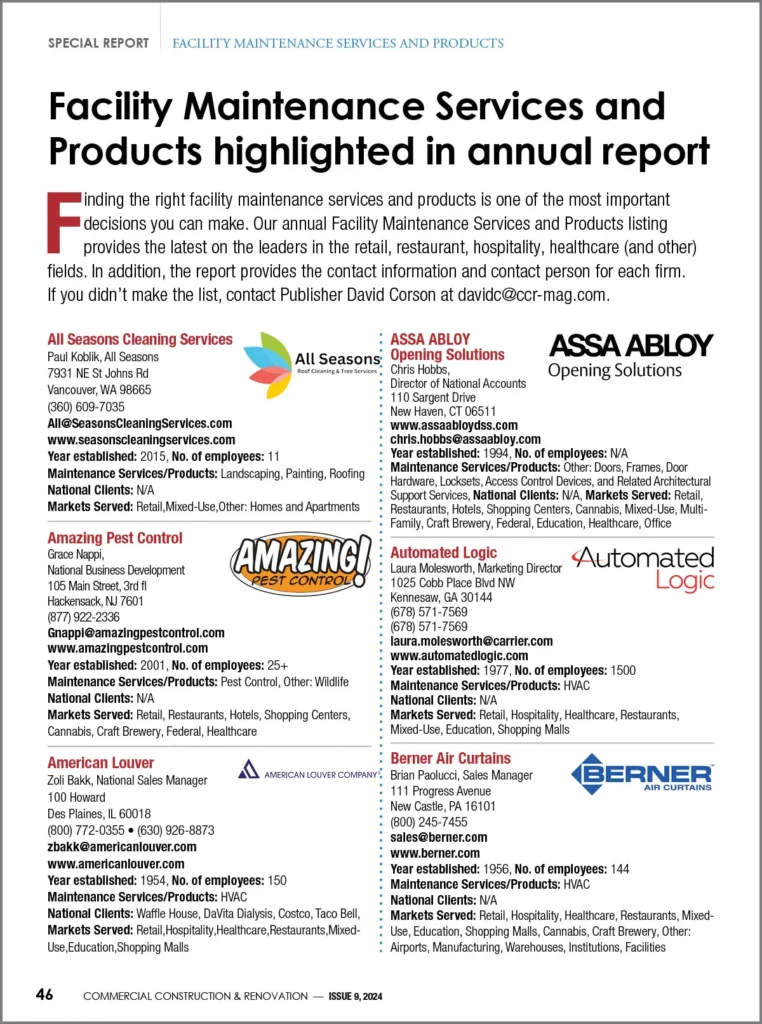Iron in water can cause all kinds of headaches for commercial properties. From stained fixtures to compromised water quality, iron buildup affects both aesthetics and functionality. Installing an iron filter system is a practical solution that tackles these issues head-on.
This article explores how they work and why they’re worth considering for your commercial property.
How Iron Filters Work
Iron filters remove iron from water by oxidizing dissolved iron into solid particles, which can then be filtered out. Here’s a breakdown of the general process:
- Oxidation: The filter introduces an oxidizing agent (such as air or potassium permanganate), which reacts with the dissolved iron to convert it into solid particles.
- Filtration: Once oxidized, the solid iron particles are trapped in the filter media, allowing only clean, iron-free water to pass through.
- Backwashing: Over time, the filter media becomes clogged with trapped iron, so the system performs a backwash cycle to flush out the particles and refresh the media.
Advanced filtration systems from providers like Crystal Water remove not only iron but also manganese, arsenic, heavy metals, and other contaminants without using chemicals. This makes them a safer choice for commercial properties.
Key Advantages of Iron Filter Systems
Installing an iron filter system brings significant benefits to commercial properties, providing solutions that go beyond basic filtration.
1. Improves Water Quality
Iron in water affects its taste, smell, and color, creating an unpleasant experience for tenants and customers. An iron filter system effectively removes iron and other minerals, delivering fresh, clean water throughout the property. For businesses, this improves user satisfaction and helps maintain a professional environment.
High water quality is particularly important for industries like hospitality, food service, and healthcare, where cleanliness and taste impact guest experiences. An iron filter system keeps water free of metallic taste and discoloration, upholding high standards and making a positive impression on visitors.
2. Protects Plumbing and Appliances
Iron deposits inside pipes can create blockages and increase pressure, leading to leaks or corrosion over time. An iron filter prevents these deposits, protecting plumbing from the strain caused by mineral buildup and reducing the frequency of emergency repairs.
Water-using appliances, like dishwashers, water heaters, and laundry machines, also suffer from iron buildup. Removing iron from water helps appliances run more efficiently, extending their operational lifespan and reducing wear.
3. Enhances Energy Efficiency
When iron deposits clog pipes and appliances, they require more energy to pump water and function efficiently. Appliances such as boilers and water heaters must work harder to maintain performance, which increases energy usage. An iron filter reduces these deposits, allowing systems to operate with less energy.
For property managers, improved energy efficiency means lower utility bills and reduced environmental impact. Over time, the energy savings from an iron filter system can help offset installation costs, making it a cost-effective and eco-friendly choice.
4. Lowers Maintenance Costs
Water quality issues often lead to high maintenance costs, with frequent repairs needed to address mineral buildup and staining. An iron filter reduces these maintenance needs by removing minerals responsible for iron buildup, which keeps maintenance expenses under control.
Reduced maintenance also means fewer disruptions for tenants and customers, leading to a more seamless experience. The savings on repairs and cleaning contribute to long-term financial benefits, optimizing property management budgets.
5. Preserves Property Aesthetics
The appearance of a commercial property directly impacts tenant and customer impressions, and iron-stained fixtures can hurt that appeal. Stains on sinks, toilets, and surfaces may suggest neglect, impacting the property’s reputation. An iron filter prevents these stains, helping maintain a polished, well-maintained look.
For customer-facing properties like hotels, office buildings, and retail spaces, maintaining a clean, stain-free environment is essential. Clean, iron-free water ensures visitors and tenants have a positive experience, boosting overall satisfaction.
6. Improves Health and Safety
Iron in water can encourage the growth of bacteria, such as iron bacteria, which form biofilms inside pipes that clog plumbing and produce odors. While not generally harmful, these bacteria compromise water quality and create unsanitary conditions. An iron filter removes excess iron, minimizing bacteria growth and promoting a safer water supply.
This cleaner water supply is particularly valuable for properties with strict sanitation standards. Maintaining a clean, bacteria-free water system reassures tenants and customers, supporting health and safety.
7. Supports Compliance With Water Quality Standards
Certain industries must meet specific water quality standards for health and safety, and high iron levels can interfere with these requirements. An iron filter helps properties meet these regulatory standards, reducing compliance risks in sectors like hospitality, healthcare, and food service.
Proactively managing water quality not only helps avoid fines but also boosts the property’s reputation with clients and regulators. Meeting and exceeding quality standards shows a commitment to safety, strengthening trust with tenants and partners.
8. Enhances Property Value
Properties with iron-free water systems appeal to prospective buyers and tenants, offering greater convenience and fewer maintenance needs. An iron filter system demonstrates a commitment to property upkeep, positively impacting market value.
In competitive markets, showcasing features like an iron filter can help differentiate the property. Potential buyers and tenants appreciate the added value of clean, iron-free water systems and may be more likely to invest in properties with well-maintained infrastructure.
With an iron filter system, your property can uphold high standards of quality and efficiency. These benefits add lasting value and create a more positive experience for tenants and visitors alike.
Maintenance Tips for Iron Filter Systems
Regular maintenance keeps an iron filter system performing efficiently and ensures clean, iron-free water throughout your property. Here are essential tasks to keep your system in top shape:
- Backwash regularly: Follow the recommended backwash schedule to clear out trapped iron particles and refresh the filter media.
- Inspect the filter media: Check the filter media periodically and replace it as needed to maintain optimal filtration.
- Clean the components: Keep injectors, nozzles, and valves clear of blockages to support consistent water flow and iron removal.
- Monitor pressure levels: Watch for drops in water pressure, which may signal the need for cleaning or maintenance.
- Test for iron bacteria: Regularly test for iron bacteria, as they can clog the system and treat if detected.
- Schedule annual servicing: Arrange professional maintenance at least once a year to optimize performance and catch any issues early.
Routine maintenance helps extend the lifespan of your iron filter and maintains water quality across your property. With a consistent upkeep plan, your system will work efficiently and reliably for years to come.
Final Thoughts
An iron filter system transforms water quality for commercial properties, offering both immediate improvements and long-term value. For property owners and managers, it’s a strategic choice that enhances efficiency, boosts reputation, and supports a healthier environment.








 The 2024 virtual Men’s Round Table will be held Q4, 2024, date TBD.
The 2024 virtual Men’s Round Table will be held Q4, 2024, date TBD.













